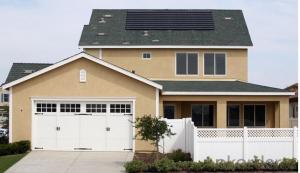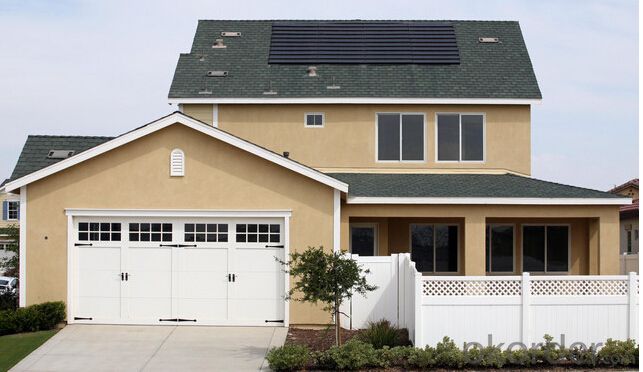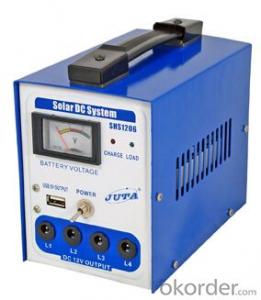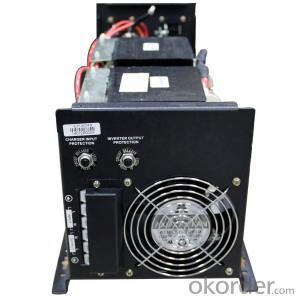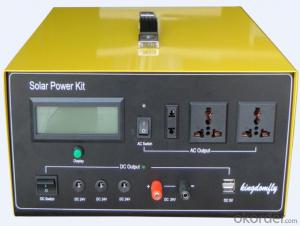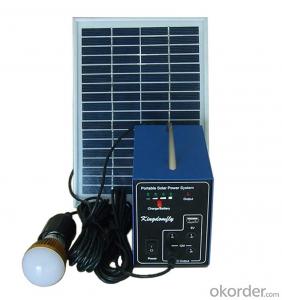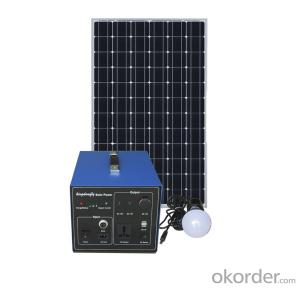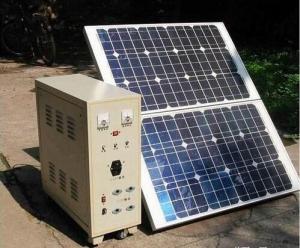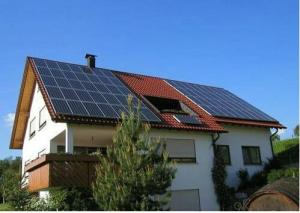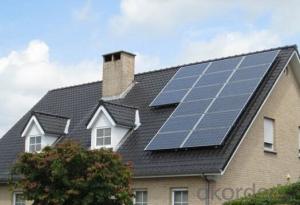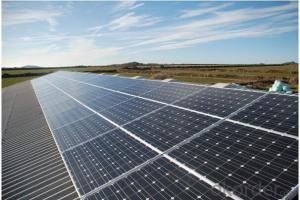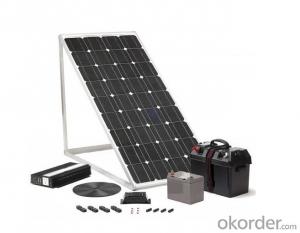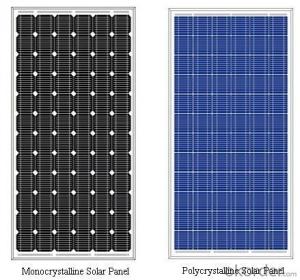Solar Energy Systems Iowa - 1kW Solar System Made in China
- Loading Port:
- China Main Port
- Payment Terms:
- TT OR LC
- Min Order Qty:
- -
- Supply Capability:
- -
OKorder Service Pledge
Quality Product, Order Online Tracking, Timely Delivery
OKorder Financial Service
Credit Rating, Credit Services, Credit Purchasing
You Might Also Like
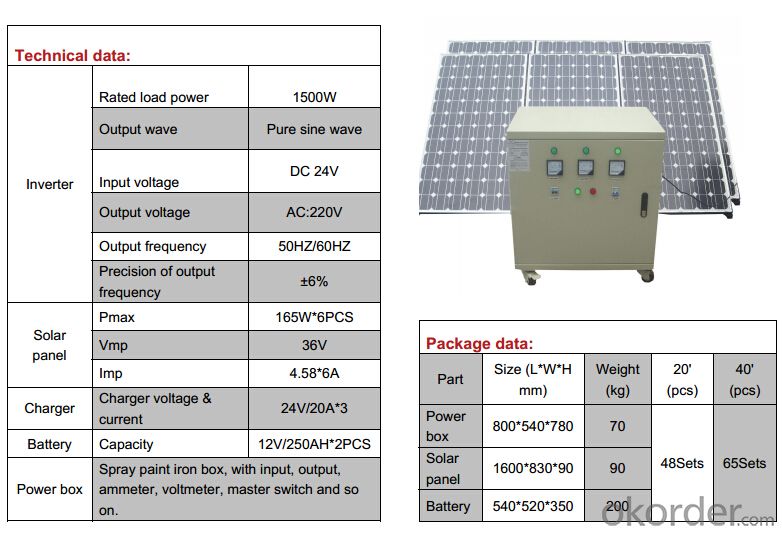
- Q: How do solar energy systems affect the resale value of homes?
- Solar energy systems can have a positive impact on the resale value of homes. Studies have shown that homes equipped with solar panels tend to sell for a higher price compared to similar homes without solar systems. This increase in value is primarily due to the potential energy cost savings and the growing demand for sustainable solutions among homebuyers. Additionally, solar energy systems often come with attractive incentives and tax credits, making them an appealing feature for potential buyers.
- Q: Can solar energy systems be used for powering hospitals or healthcare facilities?
- Certainly, hospitals and healthcare facilities can make use of solar energy systems to power their operations. Solar energy is a renewable and sustainable power source that presents a dependable and cost-effective solution for meeting the energy requirements of these establishments. Essential medical equipment, lighting, heating, cooling, and other crucial systems necessitate a significant amount of electricity in hospitals and healthcare facilities. Photovoltaic (PV) panels, for instance, can generate electricity directly from sunlight. These panels can be installed on hospital rooftops or in open areas surrounding the facility to capture sunlight and convert it into usable electricity. This electricity can then be utilized to power various equipment and systems within the establishment, decreasing reliance on conventional energy sources and reducing operational expenses. The environmental sustainability of solar energy in healthcare facilities is one of its notable advantages. Solar power is a clean and eco-friendly energy source that produces zero greenhouse gas emissions, thereby assisting in the mitigation of climate change and the reduction of air pollution. Hospitals have a responsibility to promote public health, and by transitioning to solar energy, they can positively impact the environment and serve as a role model for others. Furthermore, solar energy systems can be combined with energy storage solutions like batteries to ensure an uninterrupted power supply even during periods of low sunlight or power outages. This ensures the continued operation of critical medical equipment and life-support systems, thus enhancing the resilience and reliability of healthcare facilities. There are numerous successful instances worldwide where hospitals and healthcare facilities have adopted solar energy systems. These establishments have not only decreased their carbon footprint but also achieved significant savings on their energy bills. In some cases, hospitals have even become self-sufficient in terms of energy by generating surplus electricity, which can be fed back into the grid or used to power neighboring buildings. In conclusion, solar energy systems are a feasible and practical choice for powering hospitals and healthcare facilities. They offer a sustainable and dependable source of electricity, reduce operating costs, promote environmental sustainability, and enhance the resilience of critical systems. As renewable energy solutions become more widely embraced, it is crucial for healthcare facilities to consider implementing solar power to meet their energy needs.
- Q: Can solar energy systems be used for powering refrigeration systems?
- Yes, solar energy systems can be used for powering refrigeration systems. Solar energy can be converted into electricity through solar panels, which can then be used to power refrigeration systems. This is commonly done through the use of photovoltaic (PV) systems, where sunlight is converted into electricity using semiconducting materials. The electricity generated by these systems can be used to power the compressors and other components of refrigeration systems, allowing them to operate without relying on traditional power sources. By utilizing solar energy for refrigeration, not only can energy costs be reduced, but also the environmental impact can be minimized, as solar energy is a clean and renewable source of power.
- Q: Can solar energy systems be used for powering electric vehicle charging pads?
- Yes, solar energy systems can definitely be used for powering electric vehicle charging pads. Solar panels can be installed on rooftops or in open areas to capture sunlight and convert it into electricity. This electricity can then be used to power the charging pads for electric vehicles. By utilizing solar energy, not only can we reduce our dependence on fossil fuels but also reduce greenhouse gas emissions associated with charging electric vehicles using grid electricity. Additionally, solar-powered charging pads can be installed in remote or off-grid locations where access to the power grid is limited or non-existent. This makes solar energy systems a sustainable and environmentally friendly solution for powering electric vehicle charging pads.
- Q: How do solar energy systems affect the roof's lifespan?
- Solar energy systems can actually extend the lifespan of a roof. By acting as a protective shield, solar panels can help to reduce the impact of harsh weather conditions such as rain, hail, and UV radiation on the roof. Additionally, solar panels can provide shade and insulation, thereby reducing the temperature fluctuations that can cause wear and tear on the roof. Overall, solar energy systems can contribute to the longevity and durability of the roof.
- Q: What is the role of combiner boxes in a solar energy system?
- Combiner boxes play a crucial role in a solar energy system as they act as a central hub for connecting and protecting multiple solar panel strings. They combine the electrical output from these strings and direct it towards the inverter, ensuring efficient power generation and optimal system performance. Additionally, combiner boxes include safety features such as fuses and surge protectors, preventing any electrical damage or fire hazards.
- Q: Can solar energy systems be used in powering car charging stations?
- Yes, solar energy systems can definitely be used to power car charging stations. In fact, many car charging stations around the world are already powered by solar energy. Solar panels can be installed on the roof or nearby the charging station, which then captures sunlight and converts it into electricity. This renewable energy can be used to charge electric vehicles (EVs) without relying on the traditional power grid. Solar-powered car charging stations offer several advantages. Firstly, they provide a sustainable and clean source of energy, reducing carbon emissions and the overall environmental impact of EVs. Secondly, they can be installed in remote or off-grid locations where it may be challenging or expensive to connect to the electrical grid. This makes solar-powered charging stations particularly beneficial for rural areas or highways that lack easy access to electricity. Furthermore, solar energy systems can be designed to include battery storage, allowing the excess energy generated during the day to be stored and used during the night or during times of high demand. This ensures a continuous and reliable source of power for car charging stations, even when sunlight is not available. Although the initial installation cost of solar energy systems may be higher compared to traditional power sources, they generally have lower operating and maintenance costs in the long run. Additionally, there are various government incentives and rebates available to promote the use of renewable energy, which can help offset these initial costs. Overall, solar energy systems are a viable and sustainable solution for powering car charging stations, offering environmental benefits, energy independence, and cost savings in the long term.
- Q: What are the different financing options for solar energy systems?
- There are several financing options available for solar energy systems, including purchasing the system outright with cash, taking out a solar loan, leasing the system, or entering into a power purchase agreement (PPA). Each option has its own advantages and considerations, such as upfront costs, ownership of the system, maintenance responsibilities, and potential savings. It is important to research and compare these options to determine which one aligns best with your financial goals and circumstances.
- Q: Can solar energy systems be used in areas with limited access to maintenance services?
- Yes, solar energy systems can be used in areas with limited access to maintenance services. Solar panels are designed to be durable and require minimal maintenance. They have no moving parts, reducing the need for regular servicing. Additionally, advancements in solar technology have improved the reliability and longevity of these systems. However, occasional maintenance, such as cleaning and inspecting the panels, may still be necessary to ensure optimal performance.
- Q: Do solar panels work on cloudy days?
- Yes, solar panels can still generate electricity on cloudy days, although their efficiency may be reduced. Cloud cover decreases the amount of sunlight reaching the panels, resulting in a lower energy output compared to sunny days. However, solar panels are still able to convert diffuse sunlight into electricity, making them functional even in less than ideal weather conditions.
Send your message to us
Solar Energy Systems Iowa - 1kW Solar System Made in China
- Loading Port:
- China Main Port
- Payment Terms:
- TT OR LC
- Min Order Qty:
- -
- Supply Capability:
- -
OKorder Service Pledge
Quality Product, Order Online Tracking, Timely Delivery
OKorder Financial Service
Credit Rating, Credit Services, Credit Purchasing
Similar products
Hot products
Hot Searches
Related keywords
